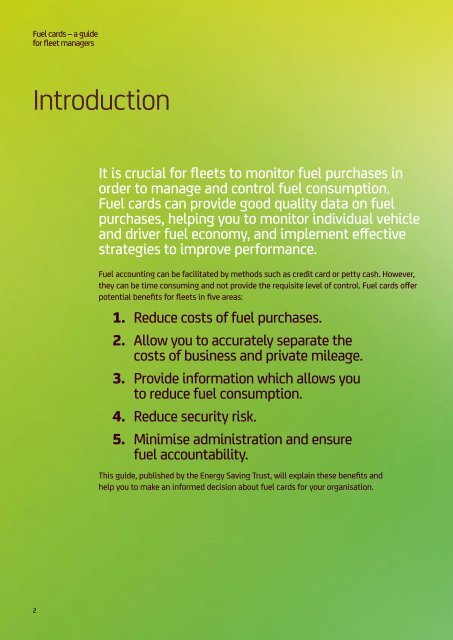You also want an ePaper? Increase the reach of your titles
YUMPU automatically turns print PDFs into web optimized ePapers that Google loves.
<strong>Fuel</strong> <strong>card</strong>s – a <strong>guide</strong>for fleet managersIntroductionIt is crucial for fleets to monitor fuel purchases inorder to manage and control fuel consumption.<strong>Fuel</strong> <strong>card</strong>s can provide good quality data on fuelpurchases, helping you to monitor individual vehicleand driver fuel economy, and implement effectivestrategies to improve performance.<strong>Fuel</strong> accounting can be facilitated by methods such as credit <strong>card</strong> or petty cash. However,they can be time consuming and not provide the requisite level of control. <strong>Fuel</strong> <strong>card</strong>s offerpotential benefits for fleets in five areas:1. Reduce costs of fuel purchases.2. Allow you to accurately separate thecosts of business and private mileage.3. Provide information which allows youto reduce fuel consumption.4. Reduce security risk.5. Minimise administration and ensurefuel accountability.This <strong>guide</strong>, published by the Energy Saving Trust, will explain these benefits andhelp you to make an informed decision about fuel <strong>card</strong>s for your organisation.2


